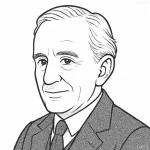“How can you prove whether at this moment we are sleeping, and all our thoughts are a dream; or whether we are awake, and talking to one another in the waking state?”

- 427 BC – 347 BC
- Born in Athens, ancient Greece
- Philosopher, scholar, founder of the Academy
table of contents
Quote
“How can you prove whether at this moment we are sleeping, and all our thoughts are a dream; or whether we are awake, and talking to one another in the waking state?”
Explanation
In this quote, Plato raises the problem of perception and the nature of reality, questioning how we can truly know whether we are dreaming or awake. He presents the possibility that our experiences—our thoughts, conversations, and perceptions—might not reflect reality as we understand it, but could instead be illusionary or part of a dream. This philosophical question touches on the limits of knowledge and the difficulty of distinguishing between illusion and truth. Plato challenges the certainty with which we often assume our sensory experiences reflect the actual state of the world, suggesting that our perceptions may be unreliable, whether we are awake or dreaming.
This idea is central to Plato’s Theory of Knowledge and his Allegory of the Cave in *The Republic*. In that allegory, Plato describes prisoners who are chained in a cave and can only see shadows on the wall, mistaking these shadows for reality. For Plato, the true philosopher seeks to ascertain higher truths and break free from these illusionary perceptions, seeking knowledge beyond the sensory world. The question of whether we are dreaming or awake serves as a metaphor for the philosopher’s quest to understand the true nature of reality, beyond the illusions presented by our senses.
In modern contexts, this quote resonates with the philosophical skepticism of thinkers like Descartes, who famously questioned the nature of reality with his statement “I think, therefore I am.” It invites reflection on the subjectivity of our experiences and how easily we might be deceived by what we perceive as real, urging us to question the validity of our senses and the nature of consciousness. This philosophical dilemma encourages us to examine and reflect on the foundations of our understanding, recognizing that the search for truth requires not just accepting what appears to be real, but engaging in deeper questioning and reasoning.
Would you like to share your impressions or related stories about this quote in the comments section?



